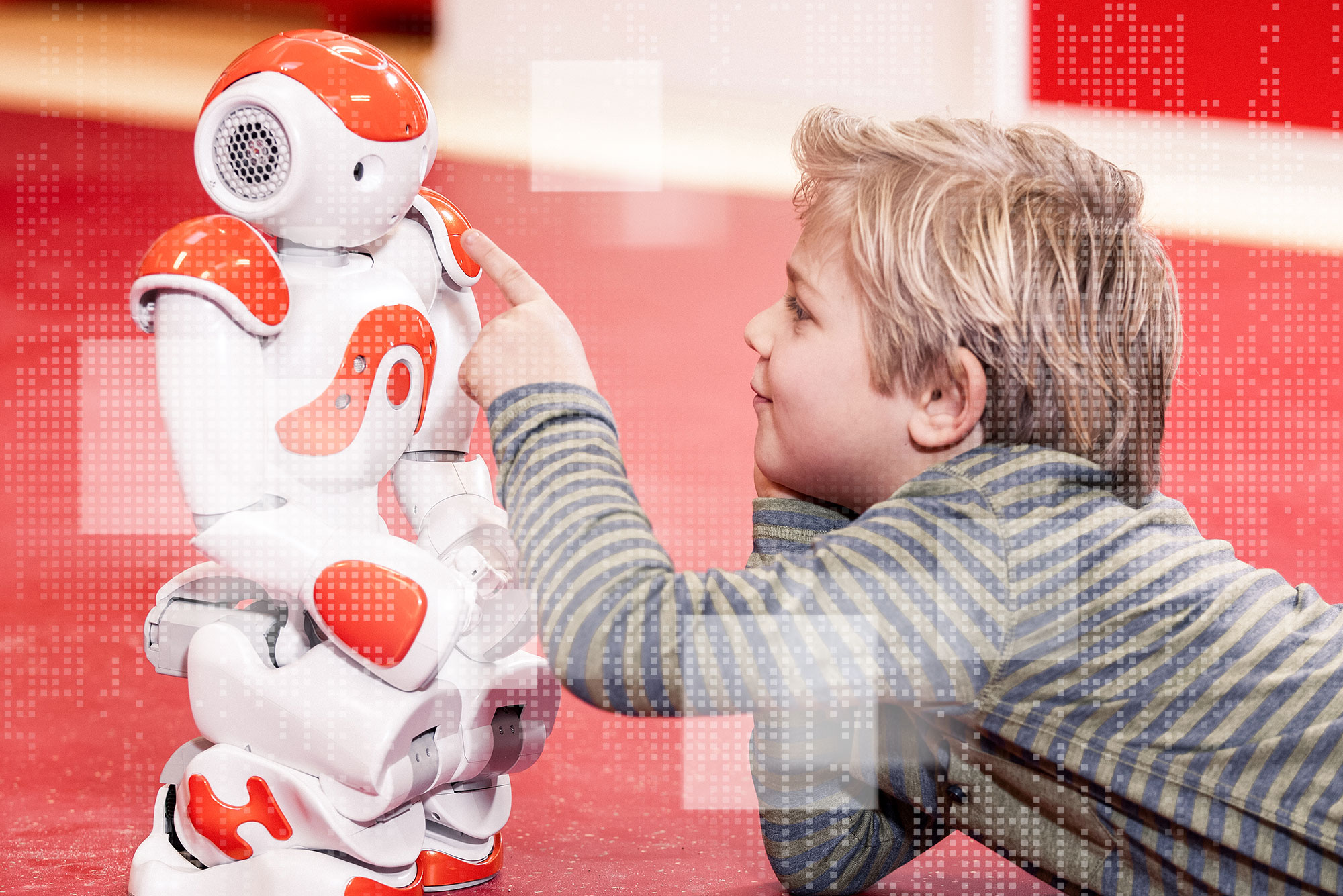We believe that digitization can expand and improve people’s scope for action and their quality of life – both in their leisure time and in their working environment. However, the only way to realize this vision is by developing technologies and digital solutions that focus on people; that qualify, motivate and involve them. This is what lets these technologies serve a clear purpose, makes them user-friendly and ensures that they take potential fears into account.
Taking individuals’ behavior into account
The more qualified, motivated and involved humans are, the better. That is why we at the Fraunhofer SCS Working Group are researching the behavior of humans in their interaction with technology. When developing digital solutions, we put potential users center stage in order to counteract fears and resistance and to promote acceptance. In particular, we are dealing with the following topics and questions:
- User-integrated development and evaluation: What can future users contribute to the development of digital solutions, and which methods can we use to efficiently evaluate the success or benefit?
- User behavior, acceptance and adoption: Which factors influence the use of digital solutions, and how can intervention or nudging help change behavior?
- Methods for user integration – behavioral data in offline scenarios: How can we evaluate human behavior during actual usage situations, which technologies can we use to record behavior, and how can we use behavioral data in innovation processes?
Our analyses in the area of human-machine interaction can be applied regardless of the industry, age or function of the user being observed. This might be an employee in a logistics warehouse where a digital picking system is to be introduced, or a doctor testing a prototype haptic-visual training system. Another example of our evaluation work is the use of robots in therapeutic settings, for instance to support the treatment of autism spectrum disorders. We also evaluate the behavioral feedback of visitors to our »JOSEPHS®« open innovation lab in downtown Nuremberg, Germany, where they develop and test products and services as co-creators.
